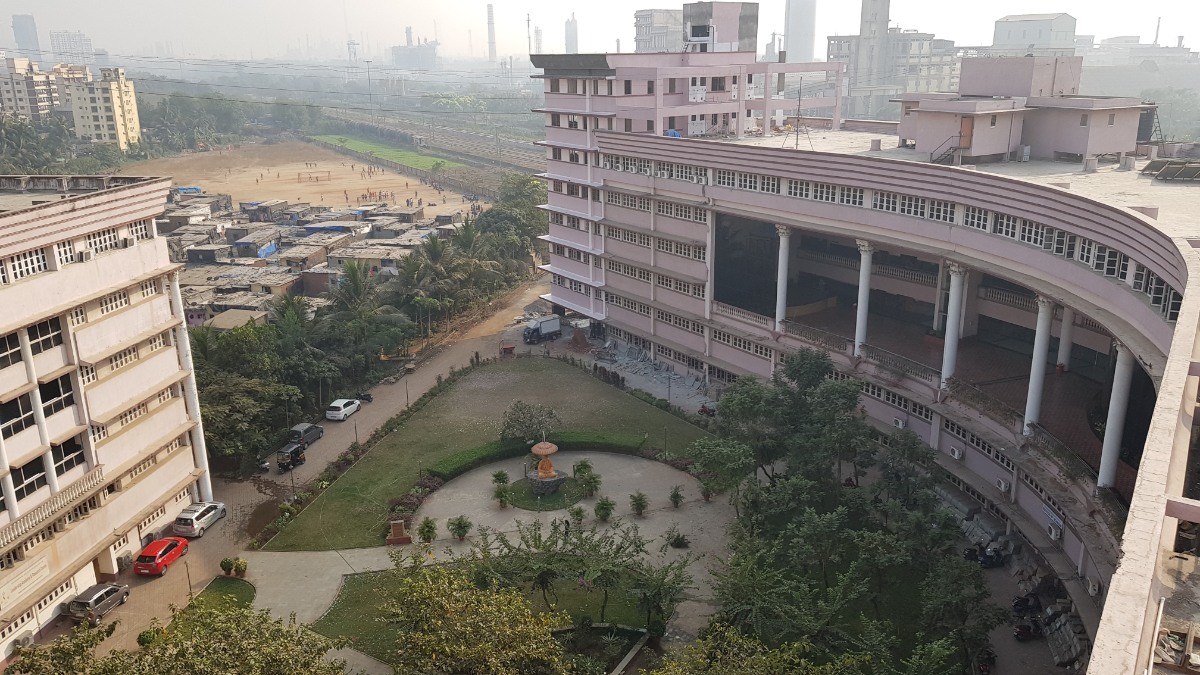Often described as the field where the sciences and arts meet, architecture is the profession which offers the creative mind ample opportunity for artistic expression as well as innovative problem solving within a technological realm. This aspect may form the core attraction this field could hold for aspiring architects, over and above the exciting potential of shaping the built environment inhabited by all of us.
Architectural education teaches students the fundamentals of designing and constructing buildings, but it also emphasizes sustainability and environmental impact. As a result, architectural graduates are well-prepared to work in the growing field of green architecture. Architects who specialize in green architecture are in high demand. Businesses and governments are increasingly looking for ways to reduce their environmental footprint, and green buildings are one way to do that. As a result, there are many job opportunities for green architects in both the public and private sectors. In addition to traditional architectural jobs, there are also a number of entrepreneurial options for green architects. For example, architects can start their own green building consulting firm or design-build firm. They can also work as green building inspectors or LEED (Leadership in Energy and Environmental Design) accredited professionals.
Transcending the arts-science dichotomy and sharpening our creative appetite, we explore a platform for responsible contributions to the human world, which makes architecture a potential field of immense work satisfaction. On the other hand, the architecture degree is directly monetisable without necessarily getting routed through an employing organisation. The architectural field also offers ample opportunities for higher academic pursuits as well as research avenues. Apart from pursuing higher education through a post graduation course and even a Ph.D., one can continue to be in the academic space through opting to teach at architectural institutions. One could also join teams or organisations engaged in several forms of research in architecture as well as allied fields like planning and design.
There are numerous verticals into which the practice of architecture may be divided corresponding to either the building/ project type or the service provided. One may have to to design a residential apartment block, independent bungalow, commercial premises like shops or malls, corporate facilities like offices, hospitality projects like hotels, industrial factory units or institutional campuses. As a landscape specialist one could design the open greens of a project, as a conservation architect one could work to preserve heritage precincts, as an MEP consultant one could specialise in organising the services like electrical and plumbing, or as a PMC consultant one could manage the execution of a building project. One could specialise in large scale planning and development of urban areas or entire regions, delving into social, economic, geographical and legal aspects of human settlements and also participate in policy formulation at the governing authority level. One can take specialisations to the next level wherein an interior designer could focus on furniture/ product design or large scale agile fitouts, while an urban planner could focus on housing, environmental planning or even eco-tourism. Some specific examples of green jobs that architectural graduates can pursue are as follows: Sustainability consultant, Green building contractor, LEED accredited professional, Green building educator. Here are some of the factors that can influence the career path of an architect in India:
- The individual’s interests and skills: The individual’s interests and skills will play a major role in determining their career path. For example, an architect who is interested in sustainability may choose to work in the field of green architecture.
- The individual’s experience and qualifications: The individual’s experience and qualifications will also play a role in determining their career path. For example, an architect who has experience in project management may be more likely to be hired as a project manager.
- The job market: The job market for architects in India is constantly changing. The individual’s ability to adapt to the changing job market will be important for their career success.
The practice of architecture inherently involves consistent collaboration with a range of consultants from various disciplines like structural engineering, electrical, mechanical, sanitation and plumbing, geo-physical and geo-spatial experts, hydrology, horticulture, climatology, heating, ventilation and air-conditioning, and many more. Most of these collaborations need to be integrated into the design process rather than plugged in as mere extensions of the scheme. Especially with the climate-emergency, the profession has wizened to the fact that passive climate-responsive strategies and sustainability are such paramount and mandatory virtues that they must be an integral part of any building design project.
Due to the upward swing of development projects across our country there is a huge requirement of technologists in design as well as construction & services fields. Thus the graduating architect can gain some site experience and take up a specialization Masters course regarding practicing as an Architectural Technologist. They work with architects to bring designs to life. They are responsible for tasks such as preparing construction drawings, managing construction projects, and ensuring that projects meet safety and building codes. Besides the boom in the construction industry there is also an obvious need for valuable research to be addressed in this growing domain of development. Thus, architects can also pursue research careers. They can work in academia, government, or private industry to conduct research on topics related to architecture, such as sustainability, energy efficiency, and building materials and many such similar measurable aspects to design.
Summarily, one can safely say that architecture as a profession offers the complete gamut of experiences and opportunities for exploration and enterprise. It is by no means an easy-going career – yes, there are steep challenges. One does routinely face many starting with the sheer demand on a professional’s stamina/ tenacity to follow through the complexities of a project successfully till completion to everyday niggles like unrealistic deadlines, superlative expectations, chaotic schedules, difficult clients/ colleagues and often disappointing remuneration. Yet, these challenges are compensated and made worthwhile by the utterly engaging fulfillment which architectural work generates. There surely is little space for half-heartedness or mediocrity in this field; one must completely refuse this meal, or savour it in entirety to enjoy its nourishment and flavour.
As an architect you design for the present, with an awareness of the past, for a future which is essentially unknown.
– Normon Foster
I believe that the way people live can be directed a little by architecture
- Tadao Ando



